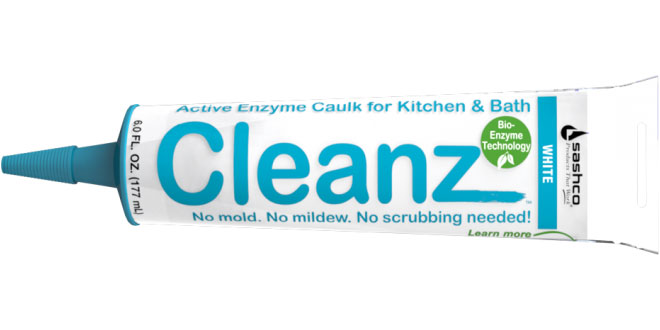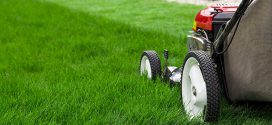Enzymes seem to be everywhere these days: food, cleaning products… oh, and they’re also in our bodies.
What are enzymes? Tiny organic proteins creating biological reactions. Without them, we wouldn’t be able to break down fats. Over the years, scientists realized they could use enzymes outside of our bodies to break down oils, fats and stains, and brought enzymes to cleaning products. It was a game changer—suddenly you don’t have to use hot water and harsh soaps to remove stains. Add enzymes to your detergent, and voila—a much gentler and environmentally friendly way to wash your clothes.
Enzymes have largely lived in the cleaning and food space—until now. Sashco, the makers of Big Stretch and Lexel, brought enzymes to bathroom caulk to help it stay clean longer and to ward off mold. How does it work? Typically, as you shower, your body oils and soaps land on the caulk and cause “soap scum” build up. That’s when mold starts to grow by feeding on the soap scum and burrowing its roots, so it’s nearly impossible to get rid of. Even if you scrub, the mold roots are still there so it regrows quickly. Sashco realized that the best way to stop mold was to attack the problem at the source, before mold has a chance to grow—by getting rid of oils and soap scum.
That’s where enzymes came in. Now when you shower, enzymes break down the oils immediately, so soap scum never builds, and mold doesn’t get a food source to grow. Your caulk stays clean, and you can say goodbye to scrubbing on the weekends. That’s why Sashco called this caulk “Cleanz.” Plus, unlike mildewcides and repellants that wear out over time, Cleanz enzymes are permanently active, for long-lasting results.
Watch Cleanz enzyme caulk work here.
 Hardware Retailing The Industry's Source for Insights and Information
Hardware Retailing The Industry's Source for Insights and Information








